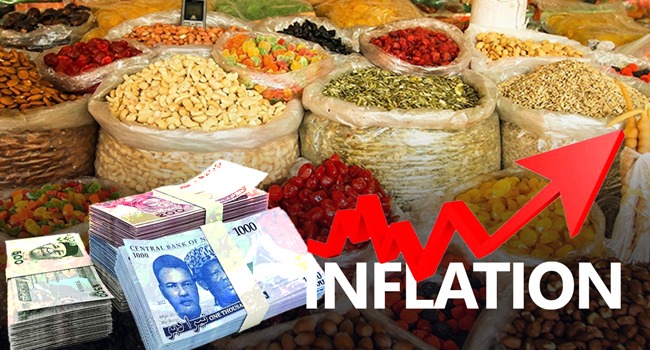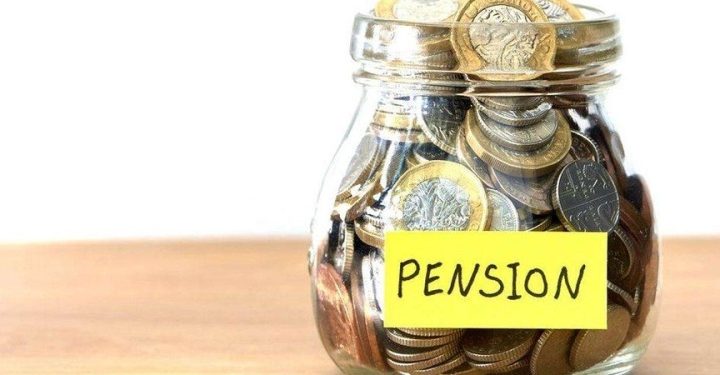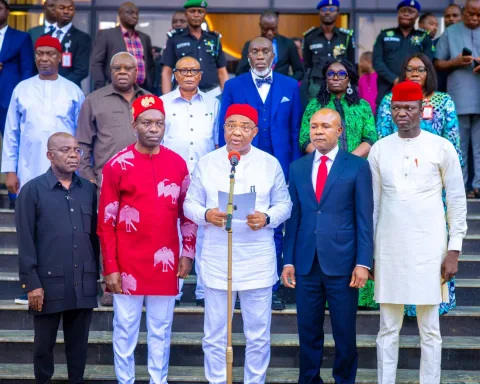Inflation Surpasses Projections
Nigeria’s inflation rate increased to 34.19% in June 2024, as reported by the National Bureau of Statistics (NBS) on July 15, 2024. This marks a 0.24% rise from May’s 33.95%.
“This increase is higher than the 34.01% projected by Meristem Research but slightly lower than Cowry Assets Management Research’s estimate of 34.25%,” said an NBS spokesperson.
Join our WhatsApp ChannelYear-On-Year and Month-On-Month Inflation Trends
On a year-on-year basis, the headline inflation rate was 11.40% higher than the 22.79% recorded in June 2023.
The monthly inflation rate for June 2024 rose by 2.31%, up from May’s 2.14%.
“This means that in June 2024, the rate of increase in the average price level is higher than in May 2024,” the NBS reported.
Impact on Food Prices
Food inflation continues to be a significant driver of overall inflation. Prices of essential items like millet, garri, yam, groundnut oil, palm oil, and cereals have all increased.
READ ALSO: Food Inflation Crisis: Nigerian Govt Approves N2trn Package, Suspends Duty On Rice, Wheat, Others
Government Measures to Combat Inflation
In response to the rising inflation, the Federal Government, through the Minister of Agriculture and Food Security, Abubakar Kyari, announced the suspension of duties, tariffs, and taxes on some essential food items.
This measure, effective for 150 days, includes maize, wheat, husked brown rice, and cowpeas.
“This is part of the Presidential Accelerated Stabilisation and Advancement Plan, aiming to achieve food security and economic stability,” said Kyari.
Duty-Free Import Window
The government has opened a 150-day duty-free import window for essential food items to curb the rising inflation.
The decision aims to reduce the cost burden on Nigerians.
Collaboration for Agricultural Expansion
The government also plans to collaborate with states to expand land cultivation nationwide.
This initiative is intended to increase local food production and reduce dependence on imports.
Public Reactions and Analyst Opinions
Many Nigerians are feeling the impact of inflation on their daily lives. “Prices of basic food items keep going up. It’s becoming difficult to manage,” said Chinedu Okafor, a local trader.
Economists are cautiously optimistic about the government’s measures. “The duty-free import window is a positive step, but long-term solutions are needed to stabilize prices,” commented Dr. Ahmed Bello, an economic analyst.
The government’s recent actions reflect its ongoing efforts to address the inflation crisis and support economic stability. The effectiveness of these measures will be closely monitored in the coming months.
Emmanuel Ochayi is a journalist. He is a graduate of the University of Lagos, School of first choice and the nations pride. Emmanuel is keen on exploring writing angles in different areas, including Business, climate change, politics, Education, and others.
- Emmanuel Ochayihttps://www.primebusiness.africa/author/ochayi/
- Emmanuel Ochayihttps://www.primebusiness.africa/author/ochayi/
- Emmanuel Ochayihttps://www.primebusiness.africa/author/ochayi/
- Emmanuel Ochayihttps://www.primebusiness.africa/author/ochayi/



















Follow Us